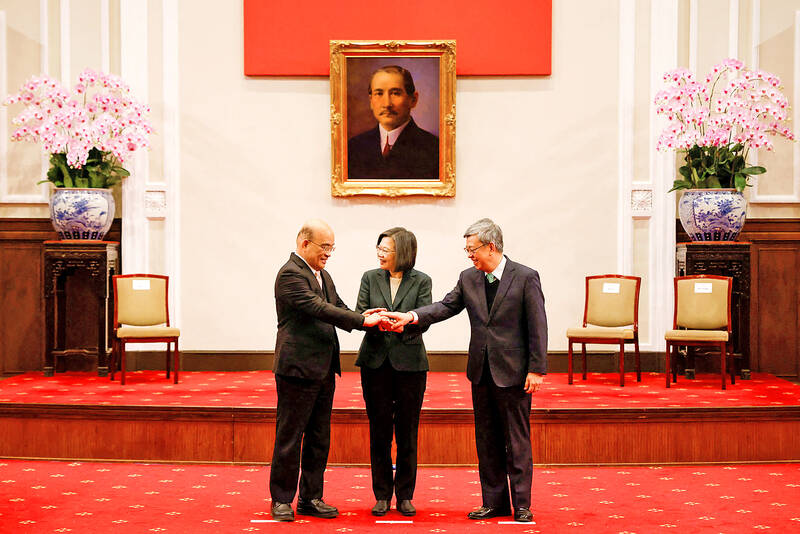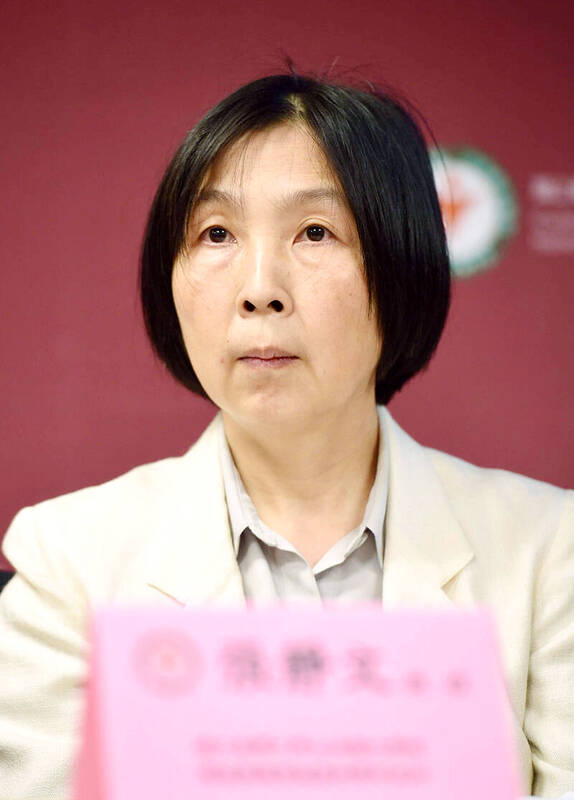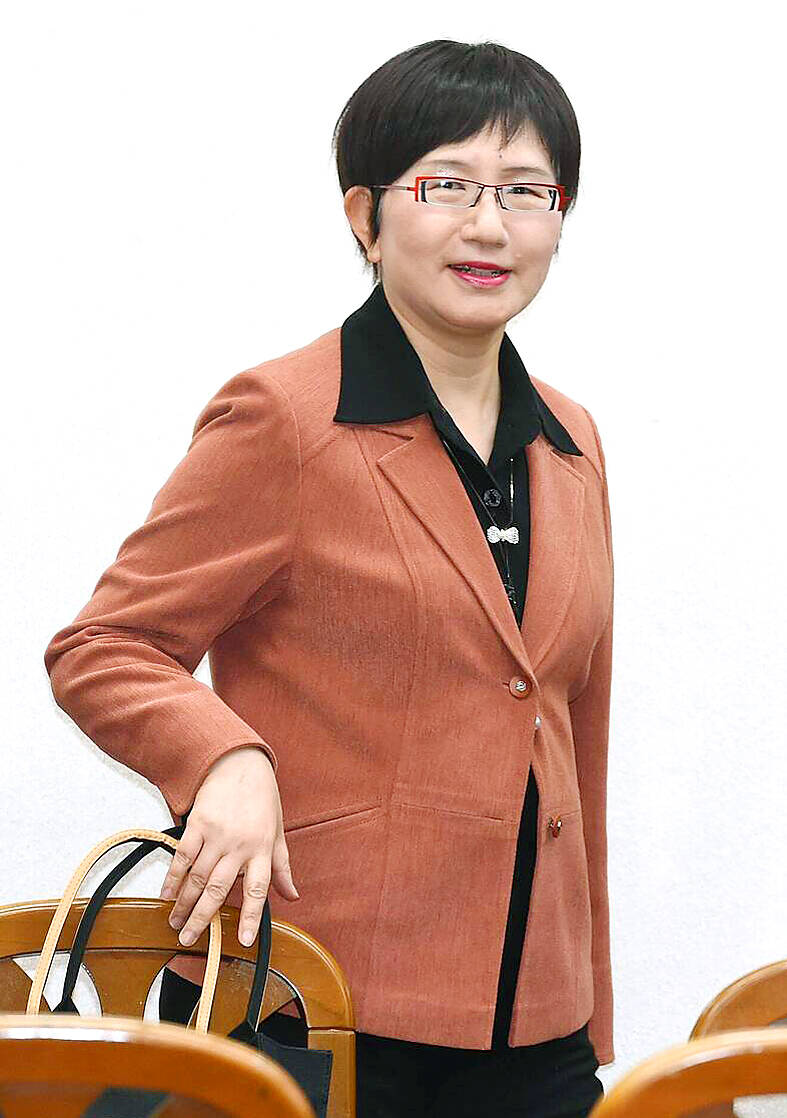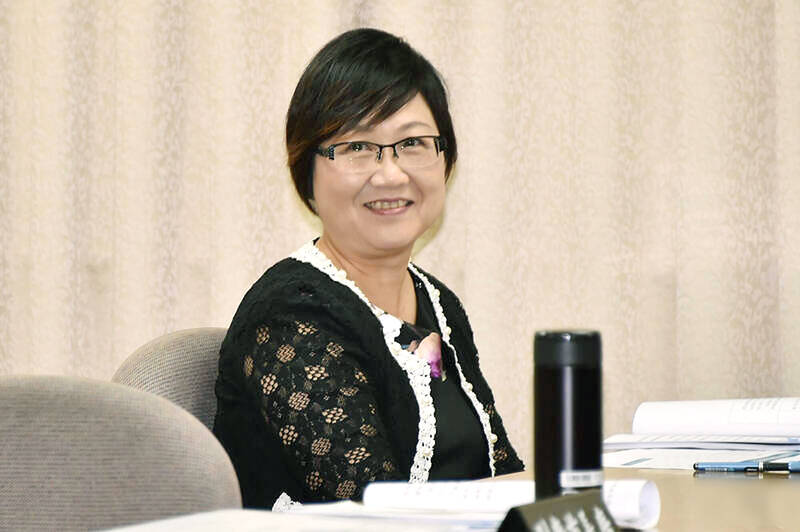President Tsai Ing-wen yesterday (蔡英文) appointed former vice president Chen Chien-jen (陳建仁) as the new premier.
The appointment of Chen, who vowed to bolster Taiwan’s economic, environmental and societal tenacity, is part of a Cabinet reshuffle after former premier Su Tseng-chang (蘇貞昌) announced the resignation of his Cabinet on Thursday last week.
Su’s Cabinet is to resign on Monday, and a handover ceremony is to be held the following day, Cabinet spokesman Lo Ping-cheng (羅秉成) said in a statement.

Photo: Carlos Garcia Rawlins, REUTERS
Addressing a news conference in Taipei, Chen thanked Su for stabilizing the country, helping Tsai win re-election and leading the fight against the COVID-19 pandemic.
Su’s Cabinet won the trust of Taiwanese as it introduced policies that bolstered economic development and led Taiwan to gain recognition from the world, he said.
Having worked with several premiers, Chen said that Su’s achievements were “indeed not easy.”

Photo: Taipei Times file photo
Taiwan “has reached new heights” in terms of economic prowess and international status under Tsai, Chen said, adding that the government transformed Taiwan into an ideal nation for its inhabitants.
“I will shoulder the responsibility without hesitation during the rest of Tsai’s term,” he said.
Chen said that while he loves conducting research, he is happy to contribute his strengths when the nation is in need.

Photo: Taipei Times file photo
He said he feels fortunate to live in such a free and democratic country.
Although Taiwan’s fight against the pandemic has been more effective than most countries, the government has to increase its efforts to help the economy recover, he said.
The new Cabinet must continue the policies that have benefited the country, but adjust its approach to promote post-pandemic recovery, boost social security, improve infrastructure and develop six core strategic industries: information and communication technology, information security, precision healthcare, defense, renewable energy and wartime necessities, Chen said.

Photo: Taipei Times file photo
The government should also be more aware of public opinion, pay more attention to communication, and provide care for families and disadvantaged people, he added.
Tsai thanked Su for taking up the position in the most difficult time and praised him as “the key force that supports the nation.”
Su’s Cabinet went all-out to keep African swine fever at bay, combat the COVID-19 pandemic and ensure the nation’s water supply, she said.
Taiwan not only overcame those difficulties, but helped the public maintain a normal life and won support from democratic partners around the globe, she added.
From passing a marriage equality bill to allowing imports of US pork and beef products, and reforming military service, Su has always been supportive, she said, adding that he “made the impossible possible,” including installing air-conditioners in each classroom in the nation’s public elementary, junior-high and high schools, moving the cables along the highway to Pingtung County’s Oluanpi (鵝鑾鼻) underground and completing the electrical upgrades to the South-Link Line of the Taiwan Railways Administration, she said.
“The script of life has been written long ago. There is no way to peek at it so I can only go all-out,” she quoted Su as saying.
She hopes that the new Cabinet can be “warm and tough” to face the many challenges to come, she said.
Tsai said she hopes that Chen can use his expertise in science to help cement Taiwan’s advantages in the semiconductor industry, further boost the nation’s competitiveness and stabilize the economy.
Meanwhile, rumors that Representative to the US Hsiao Bi-khim (蕭美琴) and Minister of Foreign Affairs Joseph Wu (吳釗燮) would switch posts are untrue, the Chinese-language Liberty Times (the sister newspaper of the Taipei Times) reported.
Hsiao is to stay in Washington, where she would continue to play a key role in communicating with the US on behalf of Taiwan, it said.
The Liberty Times also reported that three more women would become ministers. Deputy Minister of Finance Chuang Tsui-yun (莊翠雲), Overseas Community Affairs Council Deputy Minister Hsu Chia-ching (徐佳青) and Atomic Energy Council Deputy Minister Chang Ching-wen (張靜文) would be promoted to head their respective agencies, it said.
Ministers without portfolio Lin Wan-yi (林萬億), Chang Ching-sen (張景森), Wu Tze-cheng (吳澤成), John Deng (鄧振中), Lo Ping-cheng (羅秉成), Kung Ming-hsin (龔明鑫), Huang Chih-ta (黃致達) and Wu Tsung-tsong (吳政忠) would retain their posts, it added.
Additional reporting by Tzou Jiing-wen and CNA

CHAOS: Iranians took to the streets playing celebratory music after reports of Khamenei’s death on Saturday, while mourners also gathered in Tehran yesterday Iranian Supreme Leader Ayatollah Ali Khamenei was killed in a major attack on Iran launched by Israel and the US, throwing the future of the Islamic republic into doubt and raising the risk of regional instability. Iranian state television and the state-run IRNA news agency announced the 86-year-old’s death early yesterday. US President Donald Trump said it gave Iranians their “greatest chance” to “take back” their country. The announcements came after a joint US and Israeli aerial bombardment that targeted Iranian military and governmental sites. Trump said the “heavy and pinpoint bombing” would continue through the week or as long

TRUST: The KMT said it respected the US’ timing and considerations, and hoped it would continue to honor its commitments to helping Taiwan bolster its defenses and deterrence US President Donald Trump is delaying a multibillion-dollar arms sale to Taiwan to ensure his visit to Beijing is successful, a New York Times report said. The weapons sales package has stalled in the US Department of State, the report said, citing US officials it did not identify. The White House has told agencies not to push forward ahead of Trump’s meeting with Chinese President Xi Jinping (習近平), it said. The two last month held a phone call to discuss trade and geopolitical flashpoints ahead of the summit. Xi raised the Taiwan issue and urged the US to handle arms sales to

A magnitude 5.6 earthquake struck off the coast of Yilan County at 12:37pm today, with clear shaking felt across much of northern Taiwan. There were no immediate reports of damage. The epicenter of the quake was 16.9km east-southeast of Yilan County Hall offshore at a depth of 66.8km, Central Weather Administration (CWA) data showed. The maximum intensity registered at a 4 in Yilan County’s Nanao Township (南澳) on Taiwan’s seven-tier scale. Other parts of Yilan, as well as certain areas of Hualien County, Taipei, New Taipei City, Taoyuan, Hsinchu County, Taichung and Miaoli County, recorded intensities of 3. Residents of Yilan County and Taipei received

Taiwan has secured another breakthrough in fruit exports, with jujubes, dragon fruit and lychees approved for shipment to the EU, the Ministry of Agriculture said yesterday. The Animal and Plant Health Inspection Agency on Thursday received formal notification of the approval from the EU, the ministry said, adding that the decision was expected to expand Taiwanese fruit producers’ access to high-end European markets. Taiwan exported 126 tonnes of lychees last year, valued at US$1.48 million, with Japan accounting for 102 tonnes. Other export destinations included New Zealand, Hong Kong, the US and Australia, ministry data showed. Jujube exports totaled 103 tonnes, valued at